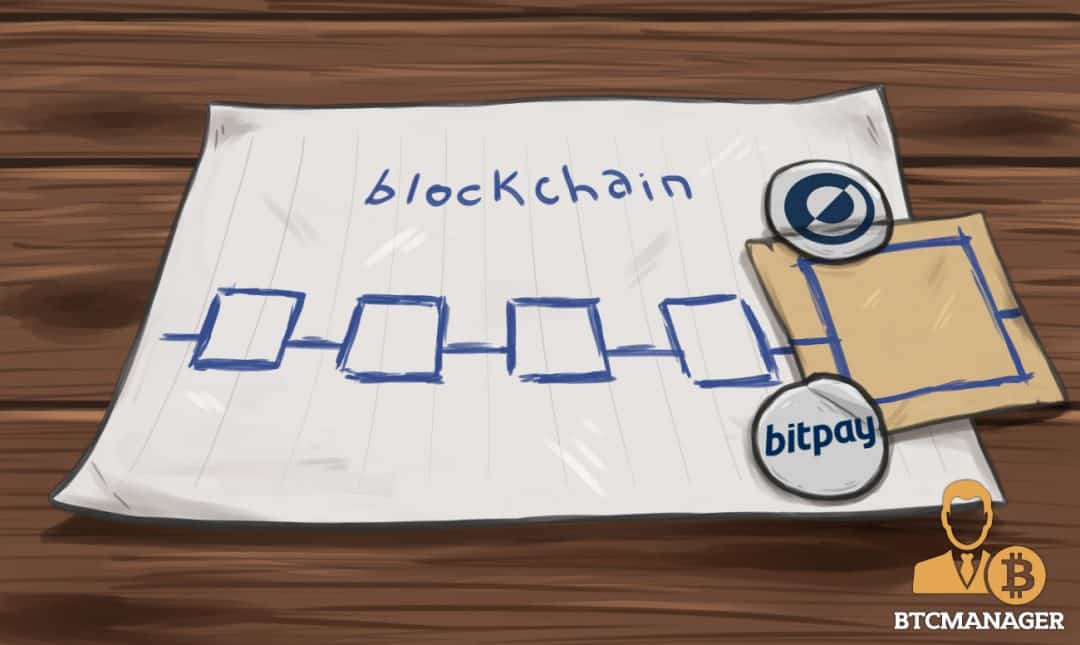Purse and BitPay Propose Extension Block Soft Fork. Could this End the Block Size War?

After SegWit-2MB, Extension Blocks is the second proposal from the week beginning April 3 that aims to overcome the block size crisis. The proposition is backed by BitPay, Purse and a Lightning developer. Chinese miners seem to like the idea, while some Core developers react slightly irritated but engaged in constructive criticism.
Purse is a service that allows you to pay things from Amazon with bitcoins – and get a discount for it. Few people know that Purse also developed bcoin, a full Bitcoin client written in Javascript (nodeJS). Beside btcd, bcoin is the only Bitcoin client not build on the C++ codebase of Core.
Until now, Purse laid low in the scaling debate. Now the company goes public with a proposal for an Extension Blocks soft fork, which combines, as Purse CEO Andrew Lees points out, “the best of both worlds.” The proposal is backed by BitPay CEO Stephen Pair, Lightning co-inventor Joseph Pool, and the free developer Fedor Indutny. Also, important miners like Jihan Wu seem ok with it.
But let’s start at the beginning – with the proposal. What does it want to achieve? What are Extension Blocks? How could they solve the scalability problem?
More Space on the Blockchain with a Soft Fork
In a Medium post, Lee presents the idea: “The goal of this proposal is a statement believing in not only in Bitcoin as a global currency usable by all but also in the spirit of innovation and liberty. We believe that we can maintain those key aspects of the bitcoin ecosystem with Extension Blocks.”
The idea of Extension Blocks goes back to a concept written by Core developer Johnson Lau in 2013. It puts the Extension Blocks at the end of regular blocks so that they are only visible for miners and nodes with upgraded clients. Like SegWit pushes the signatures in a separate block, Extension Blocks segregate as many transactions as needed outside the regular block with the size of 1MB. Nodes can, but are not required to accept, verify and relay the Extension Blocks.
In other words; like SegWit, Extension Blocks use a less disruptive soft fork to increase capacity, while they enable a more flexible control of the extra size. Also, they eliminate the transaction malleability bug in transactions in the Extension Block. As a bonus, they prevent a possible attack on Lightning Network, as the detailed proposal on GitHub explains.
The proposal was written by Andrew Lee from Purse.io, with the help of Stephen Pair from BitPay, Joseph Poon from Lightning and the developer Fedor Indutny. With these respected supporters, Extension Blocks has the chance to gain traction.
Good Press Work!
Extension Blocks was outlined as a proposal and implemented as a prototype for bcoin. The developers are optimistic to be able to test it on Bitcoin’s testnet in few weeks. “This proposal is a transparent community process with Bitcoin ecosystem stakeholder participation, including users, miners, and economic industry,” Lee explains.
The release of the proposal was accompanied by a well-orchestrated, minor press campaign. Nearly immediately after the release, Coindesk and even Forbes reported on Extension Blocks.
According to Forbes, Lee commented that he likes the idea because, “it gives everyone what they want.” Stephen Pair added: “I think it’s a good idea. I think it’s a way you can seamlessly enhance the capabilities of the network and allow people to experiment without endangering the blockchain.” However “it needs that period of time where people can test it and evaluate it.”
Even Jihan Wu likes it
The miners also seem to like Extension Blocks. Jihan Wu, CEO of BitMain and the most influential supporter of Bitcoin Unlimited, tweeted shortly after the release of the proposal, that he loves it:
I love the extension block proposal. It is compitable with BU. https://t.co/GWP1wRsRva
— Jihan Wu (@JihanWu) April 4, 2017
With this tweet, Wu caused some confusion – and confirmed the comment blockchain scientist Emin Gün Sirer gave to Forbes: “This latest move is technically very clever, and politically brilliant.” Indeed, the Extension Blocks proposal gives the side of small blockers what they want – a less disruptive activation as a soft fork and the foundation for Lightning – while it fulfills the demands of big blockers for greater transaction capacity. It is easy to like it.
Some, however, have been confused how Jihan Wu could like Extension Blocks. Didn’t the mightiest miner of China block SegWit, because it enables off-chain payments? No, Jihan Wu tweets. Miners love SegWit:
Let me correct a FUD: miners love LN. LN makes bitcoin price higher, and miners love bitcoin sold at high price, hence miners love LN.
— Jihan Wu (@JihanWu) April 4, 2017
Restrained Reaction of Core Devs but, at least, Constructive Criticism
In the Bitcoin mailing list, Luke-jr opened the discussion of Extension Blocks. The Core developer wrote: “This is a relatively complicated proposal, creating a lot of additional technical debt and complexity in comparison to both BIP 141 and hard forks” – while it does not offer benefits beyond them.
However, Luke-jr finds the proposal “very interesting and for the most part technically sound.” It promises “an ideal fit for fundamentally different block designs such as Rootstock and MimbleWimble in the absence of decentralized non-integrated sidechains.” Instead of fundamentally rejecting the proposal, Luke-jr starts to engage in constructive criticism where he points out some potential flaws, corrects some misunderstandings and advises how some parts can be improved.
Johnson Lau, who originated the concept in 2013, reacted similarly. He was a bit disappointed that the Extension Blocks proposal ignores his further elaboration on the subject from January 2017, but followed with constructive criticism like Luke-jr.
Extension Blocks leaves the typical critics on a strand with which Core flatly rejected any block size increase beyond SegWit. It could be possible that Purse succeeds with the proposal to bridge the gap between the small block and big block communities — and solves the stalemate Bitcoin currently find itself in.













